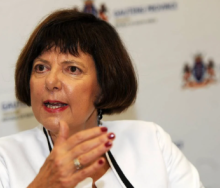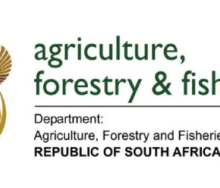Over the short term, the weak rand could have implications for local monetary policy, but for now, an interest rate hike of at least 25 basis points is likely when the SA Reserve Bank (SARB) meets next week.
This was the forecast highlighted by the Bureau for Economic Research, which said in its Weekly Review report on Monday that it still expects the SARB to raise interest rates due to upwardly sticky inflation and the weaker rand.
This is especially after the local currency breached the R19/USD mark last Thursday.
The rand hit an all-time low of R19.44/USD on Friday morning.
"For now, we still expect the Reserve Bank to hike the repo rate by 25 bps next week, but a 50 bps hike cannot be ruled out, especially if the rand does not strengthen meaningfully," BER economists said.
"The central bank was already vocal about the inflation risk posed by the rand exchange rate in the March meeting. This has now materialised. At the time of the previous meeting (30 March), the implied starting point for the SARB's rand forecast was R18.06/USD (23Q2). The average for Q2 is almost 30 cents weaker, but with the rand closing above R19/USD on Thursday and Friday, this average is being pulled up rapidly," Bureau economists said.
A recent positive development on the inflation front has been the slow but steady decline in the Brent crude oil price since the start of the month. The one-month future price declined by a further 1.5% week-on-week and is now more than $10/bbl below the price this time last month.
"Unfortunately, if sustained, the weak rand could counter the positive impact this could have on local fuel prices," the economists said.
The Centre for Risk Analysis (CRA) has said in the organisation’s weekly Risk Alert newsletter that the rand possibly hit its all-time low on Friday due to the twin causes of load-shedding and the souring of South Africa's diplomatic relations with the United States.
It followed the accusation that South Africa had supplied Russia with weapons for its war in Ukraine.
The government has denied this allegation and launched an investigation into the matter.
"Should this weakening prove to be more entrenched rather than a blip, the pressure will mount on the South African Reserve Bank to, at the very least maintain higher rates or at worst continue its hiking cycle through the second half of this year," the head of Policy Analysis at the CRA, Chris Hattingh, has said.
Stats SA will publish quarter one labour force survey employment data on Tuesday, including the latest unemployment rate.
Analysts expect the official unemployment rate to tick up to 33%.













